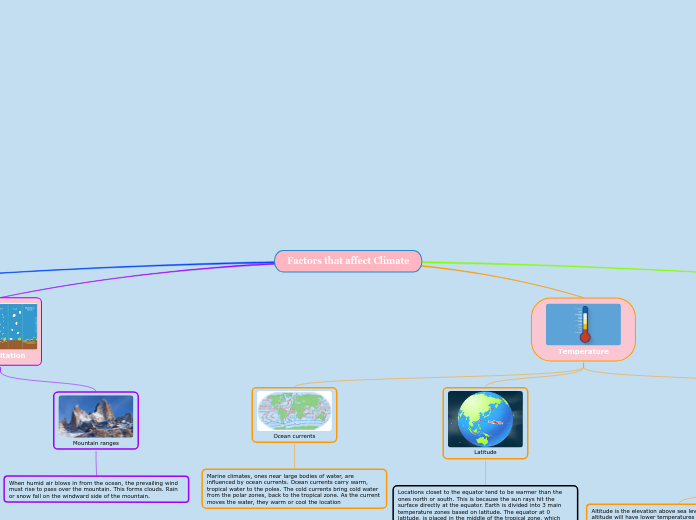realizată de Richards Arianna 4 ani în urmă
1272
Factors that affect Climate
The climate of a region is influenced by several key factors. One major aspect is the seasons, which result from the Earth's 23.5-degree axial tilt. This tilt causes variations in the angle at which the sun'









